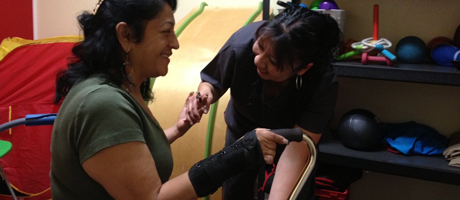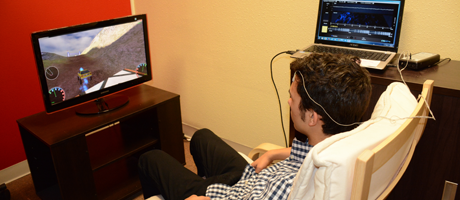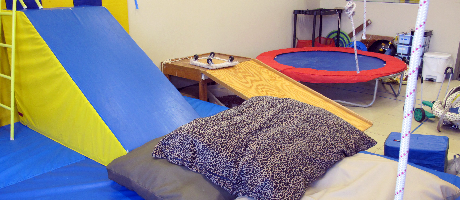Therapy Service OfferingsA sample of our occupational therapy specialties.

Occupational Therapy
Occupational therapy is designed to address the functional skills of the whole person and assist each client in working toward his/her potential. Therapy builds upon the individual strengths of each client while addressing areas that may need to be enhanced. The unique needs of each family are also considered in tailoring a program to fully enhance development.

Pediatric Division
Our pediatric division specializes in helping the children of our community develop the skills and confidence necessary for successful participation in their daily roles, including play, school, and self-care. We use a play-based, child-centered approach (often referred to as Thera-play) to provide children with the “just right challenge” necessary for improving foundational skills while also improving their overall self-esteem and motivation. Each therapy session is tailored to your child’s unique interests, strengths, and challenges. We take special care to develop child-therapist rapport so that the child feels safe and is willing to participate in increasingly challenging activities. In addition, our staff works closely with family, teachers, and other professionals to gain a more comprehensive understanding of each person’s challenges.
Therapy is typically recommended a minimum of twice per week. Children participate in various activities to improve gross and fine motor skills as well as sensory processing. In addition, therapy sessions may include therapeutic activities to address academic and/or social deficiencies, depending on your child’s individual needs.

Adult Division
Our adult division is focused on helping adults develop and/or recover daily living and work skills impeded by physical, mental or psychosocial concerns.
Each treatment session is specifically designed to meet the needs of each client in order to facilitate progression towards their goals. Strategies may include adapting the environment, modification of relevant activities, teaching the skill, and educating the client/family in order facilitate maximum performance of one’s activities of daily living.

Neurofeedback
Neurofeedback is brainwave training with emphasis on teaching the brain self-regulation strategies for optimal brain function. This leads to improved overall mental performance, emotional control, and physiological stability.

Comprehensive Evaluation
In order to best evaluate progress, a baseline of ability is determined using a combination of observation, standardized testing, and interviews. Basic background information provided from parents and teachers helps to form a contextual understanding of a child's difficulties. Standardized assessments are used to quantify a child's abilities and serve as a basis for comparison as progress is achieved. Several standardized assessments are available and your child's therapist will discuss the best options with you. The therapist can also learn a great deal via direct observation of your child in a clinic, school, or home setting. Following the evaluation, the therapist will schedule a consultation to discuss the results of the evaluation.
